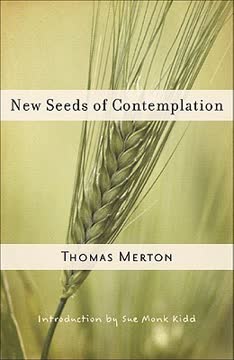نکات کلیدی
1. شجاعت بهعنوان تأیید وجودی در برابر عدم
شجاعت تأیید وجود خود در عین واقعیت عدم است.
پایهگذاری هستیشناختی. شجاعت تنها یک فضیلت یا مفهوم اخلاقی نیست، بلکه یک واقعیت هستیشناختی است که بهطور عمیق در ساختار وجود خود ریشه دارد. این مفهوم نمایانگر ظرفیت بنیادی انسان برای تأیید وجود خود در برابر تهدید مداوم عدم است.
چالش وجودی. این تأیید وجود یک عمل ساده اراده نیست، بلکه درگیری عمیق با ذات وجود است. این امر نیازمند مواجهه با اضطرابی است که از آگاهی ما نسبت به طبیعت محدودمان و احتمال نابودی خودمان ناشی میشود. شجاعت، در این معنا، قدرتی است برای در آغوش گرفتن زندگی بهطور کامل در حالی که عدم قطعیت ذاتی و پتانسیل از دست دادن آن را میپذیریم.
2. سه نوع اضطراب: سرنوشت و مرگ، پوچی و بیمعنایی، گناه و محکومیت
عدم، تأیید وجودی انسان را تهدید میکند، نسبی از نظر سرنوشت و مطلق از نظر مرگ. این عدم، تأیید روحانی انسان را تهدید میکند، نسبی از نظر پوچی و مطلق از نظر بیمعنایی. همچنین، تأیید اخلاقی انسان را تهدید میکند، نسبی از نظر گناه و مطلق از نظر محکومیت.
اضطراب وجودی. ترس از سرنوشت و مرگ، وجود بنیادی ما را به چالش میکشد. این ترس ناشی از آگاهی ما از غیرقابل پیشبینی بودن زندگی و اجتنابناپذیری مرگ خودمان است.
اضطراب روحانی. ترس از پوچی و بیمعنایی، حس هدف و اهمیت ما را تهدید میکند. این اضطراب زمانی بروز میکند که ما به ارزش و معنای زندگی و تجربیات خود شک میکنیم.
اضطراب اخلاقی. بار گناه و ترس از محکومیت، حس ارزش اخلاقی ما را به چالش میکشد. این اضطراب از ظرفیت ما برای خوداندیشی و آگاهی از استانداردهای اخلاقی ناشی میشود.
این اضطرابها پدیدههای جداگانهای نیستند، بلکه جنبههای مرتبطی از وضعیت انسانی هستند که هر یک نیاز به نوع خاصی از شجاعت برای مواجهه و غلبه دارند.
3. شجاعت برای بودن بهعنوان یک جزء: تأیید جمعی خود
شجاعت برای بودن بهعنوان یک جزء، شجاعت تأیید وجود خود از طریق مشارکت است.
ادغام اجتماعی. این نوع شجاعت شامل تأیید خود از طریق مشارکت در ساختارهای جمعی مانند خانواده، جامعه، ملت یا ایدئولوژی است. این شجاعت حس تعلق و هدفی را فراهم میکند که از بودن بخشی از چیزی بزرگتر از خود ناشی میشود.
تجلیهای تاریخی. در طول تاریخ، این شجاعت اشکال مختلفی به خود گرفته است:
- جمعگرایی ابتدایی در جوامع قبیلهای
- نیمهجمعگرایی قرون وسطی در نظامهای فئودالی
- جنبشهای توتالیتر مدرن (فاشیسم، نازیسم، کمونیسم)
- همراستایی دموکراتیک در جوامع معاصر
در حالی که این شجاعت امنیت و معنا را ارائه میدهد، خطر از دست دادن هویت فردی و سرکوب اصالت شخصی را نیز به همراه دارد.
4. شجاعت برای بودن بهعنوان خود: تأیید فردی خود
شجاعت برای بودن بهعنوان خود، شجاعت تأیید طبیعت معقول خود در برابر آنچه تصادفی در ماست، است.
استقلال وجودی. این نوع شجاعت شامل تأیید خود بهعنوان یک فرد منحصر به فرد و غیرقابل جایگزینی است که قادر به ایستادگی در برابر فشارهای اجتماعی و تهدیدات وجودی است.
توسعه تاریخی:
- انسانگرایی رنسانس و ظهور فردگرایی
- تأکید رمانتیک بر ابراز منحصر به فرد خود
- تمرکز وجودی بر اصالت شخصی و مسئولیت
شجاعت برای بودن بهعنوان خود، آزادی و خلاقیت انسانی را جشن میگیرد، اما خطر انزوا و از دست دادن ارتباط با دنیای وسیعتر و جامعه را نیز به همراه دارد.
5. محدودیتهای جمعگرایی و فردگرایی
شجاعت برای بودن بهعنوان یک جزء، با عدمی که در تأیید وجود فرد بهعنوان یک فرد نهفته است، تهدید میشود؛ شجاعت برای بودن بهعنوان خود، با عدمی که در مشارکت فرد در دنیای که بخشی از آن است، نهفته است، تهدید میشود.
تنش دیالکتیکی. هر دو نوع شجاعت - جمعی و فردی - ضروری اما بهطور ذاتی محدود هستند. تمرکز انحصاری بر هر یک منجر به از دست دادن جنبههای اساسی وجود انسانی میشود.
چاله جمعگرایی: از دست دادن هویت فردی و خلاقیت
خطر فردگرایی: انزوا و بیمعنایی
چالش این است که تعادلی پیدا کنیم که هم مشارکت معنادار در جامعه و هم ابراز اصیل خود را ممکن سازد. این تنش به نیاز به نوعی شجاعت جامعتر اشاره دارد که این دوگانگی را فراتر میبرد.
6. وجودگرایی: شجاعت ناامیدی در دوران مدرن
وجودگرایی بهعنوان یک بیان، ویژگی فلسفه، هنر و ادبیات دوران جنگهای جهانی و اضطراب همهگیر شک و بیمعنایی است.
بحران مدرن. وجودگرایی بهعنوان پاسخی به حس عمیق بیمعنایی و اضطراب که مشخصه قرن بیستم است، ظهور میکند. این شجاعت را نمایان میسازد که به ابسوردیته وجود بدون توسل به تسلیهای کاذب بپردازد.
جنبههای کلیدی:
- رد سیستمهای انتزاعی و تأکید بر تجربه انسانی ملموس
- مواجهه با واقعیت مرگ، آزادی و عدم وجود معنای از پیش تعیینشده
- تأیید مسئولیت فردی در ایجاد معنا
وجودگرایی، در حالی که اغلب با ناامیدی مرتبط است، در واقع نمایانگر نوعی شجاعت است - شجاعت برای در آغوش گرفتن عدم قطعیت زندگی و ایجاد معنا در برابر بیمعنایی ظاهری.
7. شجاعت ریشهدار در قدرت وجود: عرفانی، شخصی و فراتر از آن
شجاعت برای بودن، ریشه در خدایی دارد که زمانی که خدا در اضطراب شک ناپدید شده است، ظاهر میشود.
شجاعت عرفانی. این نوع شجاعت بر اساس تجربه وحدت با بنیاد وجود، اضطراب را از طریق شناسایی با منبع نهایی وجود غلبه میکند.
شجاعت شخصی. این شجاعت از یک مواجهه شخصی با خدا ناشی میشود و در تأکید اصلاحات پروتستان بر ایمان فردی و رابطه مستقیم با الهی تجلی مییابد.
شجاعت فراتر از آن. این نمایانگر بالاترین نوع شجاعت است که هم اتحاد عرفانی و هم مواجهه شخصی را در بر میگیرد و در عین حال محدودیتهای آنها را فراتر میبرد. این شجاعت ریشه در قدرت وجود خود دارد که حتی زمانی که تمام اشکال خاص شجاعت شکست میخورند، باقی میماند.
8. اصل پروتستان: شجاعت برای پذیرش پذیرش با وجود غیرقابل پذیرش بودن
پذیرش پذیرش با وجود غیرقابل پذیرش بودن، اساس شجاعت اعتماد به نفس است.
نعمت رادیکال. این اصل که در الهیات پروتستان مرکزی است، تأکید میکند که فرد با وجود غیرقابل پذیرش بودن بر اساس هر استاندارد اخلاقی، عقلانی یا مذهبی، توسط خدا پذیرفته میشود.
پیامدهای روانشناختی:
- رهایی از بار توجیه خود
- شجاعت برای مواجهه با نواقص و محدودیتهای خود
- بنیاد برای پذیرش و رشد واقعی خود
این اصل پایهای عمیق برای شجاعت ارائه میدهد و به فرد اجازه میدهد خود را تأیید کند با وجود آگاهی از گناه، نقص و محدودیت.
9. ایمان مطلق: شجاعت برای در آغوش گرفتن شک و بیمعنایی
ایمان، حالت درک قدرت وجود خود است.
فراتر از خداشناسی. ایمان مطلق فراتر از هر دو اتحاد عرفانی و مواجهه شخصی با خدا است. این شجاعت برای پذیرش پذیرش حتی زمانی که مفهوم خدا معنای خود را از دست داده است، است.
در آغوش گرفتن عدم قطعیت. این نوع ایمان شک را از بین نمیبرد و پاسخهای آسانی ارائه نمیدهد. بلکه شجاعت زندگی با شک و ایجاد معنا در برابر بیمعنایی ظاهری را میدهد.
تأیید وجودی. ایمان مطلق به معنای باور به دکترینهای خاص نیست، بلکه تأیید رادیکال زندگی خود است. این شجاعت برای گفتن "بله" به وجود است، با وجود ابهامات، عدم قطعیتها و تهدیدات عدم.
این مفهوم از ایمان راهی برای یافتن شجاعت و معنا در دنیایی که قطعیتهای مذهبی سنتی به لرزه درآمدهاند، ارائه میدهد و پایهای برای شجاعت وجودی در عصر مدرن فراهم میکند.
آخرین بهروزرسانی::
FAQ
What is "The Courage to Be" by Paul Tillich about?
- Exploration of Courage and Being: The book examines the concept of courage as it relates to the human condition, focusing on how individuals affirm their existence ("the courage to be") in the face of anxiety, nonbeing, and meaninglessness.
- Intersection of Philosophy and Theology: Tillich brings together philosophical, theological, and psychological perspectives to analyze how courage is rooted in the structure of being itself.
- Response to Modern Anxiety: The work addresses the existential crises of modernity, such as the loss of meaning, the rise of doubt, and the experience of anxiety, offering a framework for understanding and overcoming these challenges.
- Key Concept—Self-Affirmation: Central to the book is the idea that courage is the ethical act in which a person affirms their own being despite the threats posed by nonbeing (death, meaninglessness, guilt).
Why should I read "The Courage to Be" by Paul Tillich?
- Addresses Universal Human Concerns: The book tackles fundamental questions about existence, anxiety, and meaning that are relevant to anyone grappling with the challenges of modern life.
- Influential in Philosophy and Theology: "The Courage to Be" is considered a classic, shaping discussions in existentialism, theology, and psychology since its publication.
- Practical and Theoretical Insights: Tillich offers both a deep theoretical analysis and practical guidance for finding courage in the face of despair, making it valuable for personal growth and academic study.
- Bridges Faith and Reason: The book is especially important for those interested in the dialogue between faith, doubt, and reason, providing a nuanced approach to religious belief in a secular age.
What are the key takeaways from "The Courage to Be" by Paul Tillich?
- Courage as Self-Affirmation: True courage is the affirmation of one’s being in spite of the threat of nonbeing, which includes death, meaninglessness, and guilt.
- Three Types of Anxiety: Tillich identifies existential anxieties—fate and death, emptiness and meaninglessness, guilt and condemnation—as central to the human experience.
- Forms of Courage: The book distinguishes between the courage to be as a part (participation in groups or collectives) and the courage to be as oneself (individual self-affirmation), and ultimately, the courage to accept acceptance (transcendence).
- Transcending Theism: Tillich introduces the concept of the "God above God," suggesting that ultimate courage is rooted in a faith that transcends traditional theistic images and survives even in the face of radical doubt.
How does Paul Tillich define "courage" in "The Courage to Be"?
- Ethical and Ontological Dimensions: Courage is both an ethical act (a human virtue) and an ontological reality (rooted in the structure of being itself).
- Self-Affirmation "In Spite Of": Courage is the self-affirmation of one’s being in spite of the elements of existence that threaten it, such as fear, anxiety, and nonbeing.
- Not Mere Bravery: Tillich distinguishes courage from mere fortitude or bravery, emphasizing its deeper existential and spiritual significance.
- Participation in Something Greater: True courage involves participation in something that transcends the self, whether it be a community, a cause, or the ground of being itself.
What are the main types of anxiety discussed in "The Courage to Be" by Paul Tillich?
- Anxiety of Fate and Death: This is the most basic and universal form, arising from the awareness of mortality and the unpredictability of existence.
- Anxiety of Emptiness and Meaninglessness: This form emerges when individuals lose a sense of purpose or ultimate concern, leading to feelings of emptiness and despair.
- Anxiety of Guilt and Condemnation: This type is rooted in the awareness of moral failure and the fear of ultimate rejection or condemnation.
- Interdependence of Anxieties: Tillich notes that these anxieties are interwoven, often appearing together but with one typically dominating in a given era or individual.
How does "The Courage to Be" by Paul Tillich distinguish between the courage to be as a part and the courage to be as oneself?
- Courage to Be as a Part: This form involves affirming one’s being through participation in a group, community, or collective identity, often at the expense of individuality.
- Courage to Be as Oneself: Here, the individual affirms their unique selfhood, even if it means standing apart from the group or facing isolation.
- Tension and Balance: Tillich argues that both forms are necessary but can become problematic if taken to extremes—collectivism can erase individuality, while radical individualism can lead to alienation.
- Transcendence of Both: The highest form of courage, according to Tillich, transcends this dichotomy by affirming the self in relation to the ground of being.
What is the "God above God" concept in "The Courage to Be" by Paul Tillich?
- Transcending Theistic Images: The "God above God" refers to the ultimate ground of being that transcends traditional, personal, or anthropomorphic images of God.
- Faith Beyond Doubt: This concept allows for faith that persists even when conventional beliefs collapse, especially in the face of radical doubt and meaninglessness.
- Source of Ultimate Courage: The courage to be is ultimately rooted in this "God above God," who appears when all other gods (images, doctrines) have disappeared.
- Not Atheism, But Depth: Tillich clarifies that this is not atheism, but a deeper form of faith that acknowledges the limitations of all finite conceptions of the divine.
How does "The Courage to Be" by Paul Tillich address the problem of meaninglessness in modern life?
- Existential Crisis of Modernity: Tillich identifies the loss of meaning as a central anxiety of the modern era, resulting from the collapse of traditional values and certainties.
- Courage of Despair: He discusses the "courage of despair," where individuals face meaninglessness head-on and still affirm their being.
- Faith as Acceptance: The solution is not to escape or deny meaninglessness, but to accept acceptance itself—finding faith and courage even in the absence of clear meaning.
- Role of Absolute Faith: Tillich proposes that absolute faith, rooted in the ground of being, enables individuals to withstand and transcend the anxiety of meaninglessness.
What is the relationship between anxiety, neurosis, and courage in "The Courage to Be" by Paul Tillich?
- Existential vs. Pathological Anxiety: Tillich distinguishes between existential anxiety (a universal part of the human condition) and pathological (neurotic) anxiety, which arises when existential anxiety is not integrated.
- Neurosis as Avoidance: Neurosis is seen as a way of avoiding nonbeing by limiting one’s self-affirmation, leading to a reduced and defensive existence.
- Courage as Integration: True courage involves taking existential anxiety into oneself and affirming being in spite of it, rather than escaping into neurosis.
- Role of Healing: Both medical (psychotherapeutic) and religious (spiritual) approaches are needed, but only courage rooted in the ground of being can fully address existential anxiety.
How does "The Courage to Be" by Paul Tillich relate courage to faith and acceptance?
- Courage as Acceptance: The highest form of courage is the courage to accept acceptance, especially when one feels unacceptable due to guilt or despair.
- Faith as Self-Affirmation: Faith is not mere belief in doctrines, but the existential acceptance of being accepted by the ground of being, even in the face of nonbeing.
- Justification by Faith: Tillich reinterprets the Pauline-Lutheran doctrine of justification by faith as the courage to accept oneself as accepted, despite being unacceptable.
- Grace and Self-Transcendence: This courage is possible only through participation in something that transcends the self, which Tillich identifies as grace.
What are the best quotes from "The Courage to Be" by Paul Tillich and what do they mean?
- "The courage to be is rooted in the God who appears when God has disappeared in the anxiety of doubt."
- This encapsulates Tillich’s idea that ultimate courage arises when all traditional supports have vanished, and one finds faith in the very ground of being itself.
- "Courage is the self-affirmation of being in spite of nonbeing."
- This defines courage as the act of affirming one’s existence despite the threats of death, meaninglessness, and guilt.
- "One could say that the courage to be is the courage to accept oneself as accepted in spite of being unacceptable."
- Tillich reframes the Christian doctrine of grace as the existential act of accepting oneself, even when one feels unworthy.
- "Absolute faith is the acceptance of the power of being, even in the grip of nonbeing."
- This quote highlights the paradoxical nature of faith that persists even in the face of despair and meaninglessness.
What is the lasting impact and relevance of "The Courage to Be" by Paul Tillich?
- Enduring Influence: The book remains a foundational text in existential philosophy, theology, and psychology, influencing thinkers and practitioners across disciplines.
- Modern Relevance: Its analysis of anxiety, meaninglessness, and courage continues to resonate in a world marked by uncertainty, secularization, and rapid change.
- Practical Application: Readers find in Tillich’s work both a diagnosis of modern malaise and a prescription for personal and spiritual resilience.
- Invitation to Depth: "The
نقد و بررسی
کتاب شجاعت برای بودن به بررسی اضطراب وجودی و چگونگی غلبه بر آن از طریق شجاعت و ایمان میپردازد. تیلیش استدلال میکند که جامعهی مدرن با اضطراب روحی و بیمعنایی مواجه است که میتوان آن را با تأیید ذات خود و ارتباط با "خدا بالای خدا" حل کرد. در حالی که برخی از خوانندگان این کتاب را عمیق و آموزنده یافتند، دیگران به لحن آکادمیک و پیچیدگی فلسفی آن انتقاد کردند. بسیاری از منتقدان تحلیل تیلیش از اضطراب و بررسی ایمان او را مورد تحسین قرار دادند، اما برخی دیگر ضرورت چارچوب الهیاتی او را زیر سؤال بردند.
Similar Books













